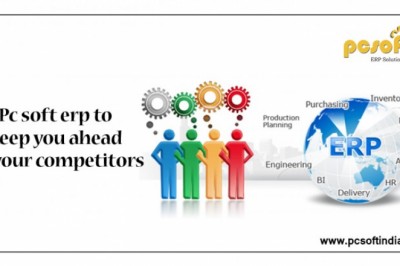views

As per a study by Statista, affiliate marketing is a multi-billion dollar industry, and spending in the U.S. alone is expected to reach over $8 billion by the end of 2022. This is more than triple what it was just ten years earlier when it took off.
With the increasing size and reach of the affiliate marketing industry, the possibility of fraud is equally increasing. Forrester found that 69% of brands spending $1 million per month reported that at least 20% of their budgets were lost to digital ad fraud. And that's a considerable amount!
This accounts for brands and advertisers to set apart a portion of their marketing budgets to monitor and track their affiliate networks. As important as is attracting more customers and increasing sales, giving the end customers a safe and trusted shopping experience is equally crucial. Digital marketing experts worldwide advise that brands should now focus on increasing the spend on digital marketing and monitoring these services.
Here is a list of 5 major reasons Why Brands need to protect their affiliate networks:

- Brand Protection
It takes a lot of effort and time to build a brand name, and customers are the prime sources of creating a brand's image. The marketing teams only work towards developing their brand's reputation. Along with increasing the customer base to boost sales, the marketing teams also focus on protecting their brand image. The malicious affiliates often redirect the users and inject cookies into their browser or system to monetize the sales. They steal users' personal information is compromised, and their machines become vulnerable to malware. The reputation can be hampered, and brands can lose the trust of their customers.
- Ensuring Compliances
Certain countries impose guidelines to protect end-users from online fraud. Brands need to monitor their network to ensure that they are compliant with government guidelines and laws. The most popular ones are
● Federal Trade Commission (FTC)
The FTC enforces federal consumer protection laws that prevent fraud, deception, and unfair business practices. The Commission also imposes federal antitrust rules prohibiting anticompetitive mergers and other business practices leading to higher prices, fewer choices, or less innovation.
● General Data Protection Regulation (GDPR)
GDPR governs how companies use, process, and store personal data (information about an identifiable, living person). It applies to all companies within Europe and those supplying goods or services to Europe.
● Children's Online Privacy Protection Act (COPPA)
COPPA regulates the site operators to allow parents to review all the information collected from their children. Practically this means that any relevant site has to provide access to all user records and log-in information when a parent requests it.
- Customer hijacking prevention
The malicious affiliate who intends to deceive advertisers and their customers to make money try to interrupt the ideal customer journey by injecting ads and diverting users to competitor websites.
While the customer goes through various stages of their online purchase journey, the threat actors take advantage of the vulnerability of the user's system and browsers due to access given to the affiliates via cookies. The affiliates can hijack a customer session at any stage to inject the affiliate cookies and monetize the sales in turn.
Brands should monitor their networks and keep track of the activities of their affiliates to prevent customer journey hijacking.
- Saving Advertising Budget
According to a study by the University of Baltimore, the total ad fraud in 2020 was 23 billion dollars. Out of which, 1.4 billion dollars was due to affiliate marketing frauds. Advertisers are losing their marketing budget on affiliate frauds, and there is a dire need for them to monitor their affiliate networks. The marketing teams invest money to attract more customers, while malicious affiliates use illegitimate techniques to deceive advertisers and earn commissions without getting traffic for their websites.
- Protecting legitimate Affiliates
Advertisers pay to affiliates for driving traffic and contributing to increasing sales. They use cookies to track the details of the affiliates and pay for each completed sale. The malicious affiliates inject their affiliate cookies in the user's browser/system and then monetize sales from the traffic driven by legitimate affiliates. This makes the affiliates driving the traffic to advertisers' websites lose their commissions and, eventually, their interest in getting business for the particular brand.
Virus Positive Technologies (VPT) is pioneering the market of Affiliate Fraud Management & Brand Protection. VPT's disruptive methodology identifies non-compliant behaviors that divert customers to competitor offerings, hurting conversion rates and damaging brand reputation. By eliminating these invasive promotions, VPT consistently recovers advertisers' revenue and brand value; companies can win back more than 90% of their stolen revenue. The world's largest retailers rely on VPT's solutions to eliminate invasive promotions, preserve the online customer experience, and consistently recover advertiser' revenue.












